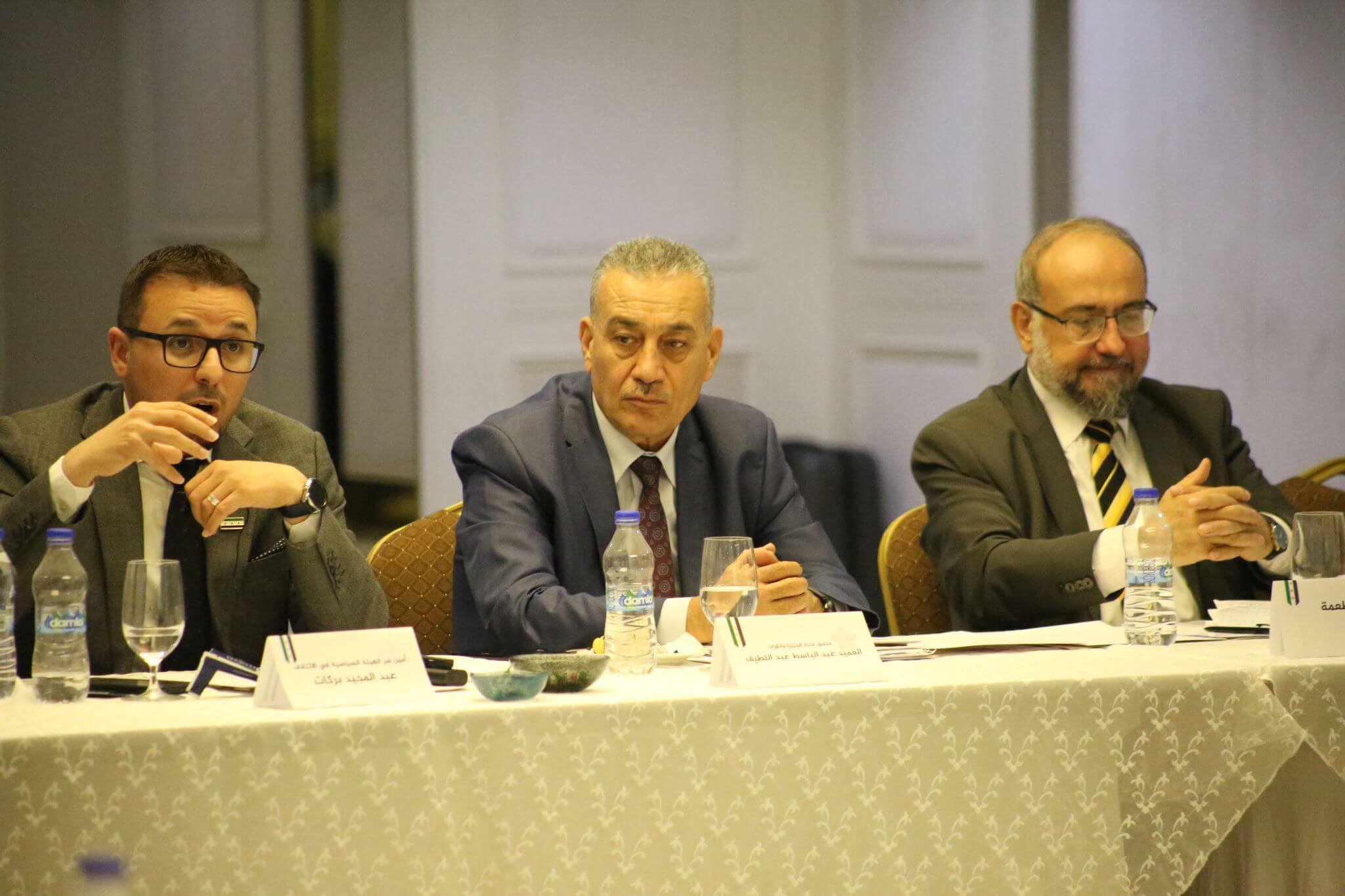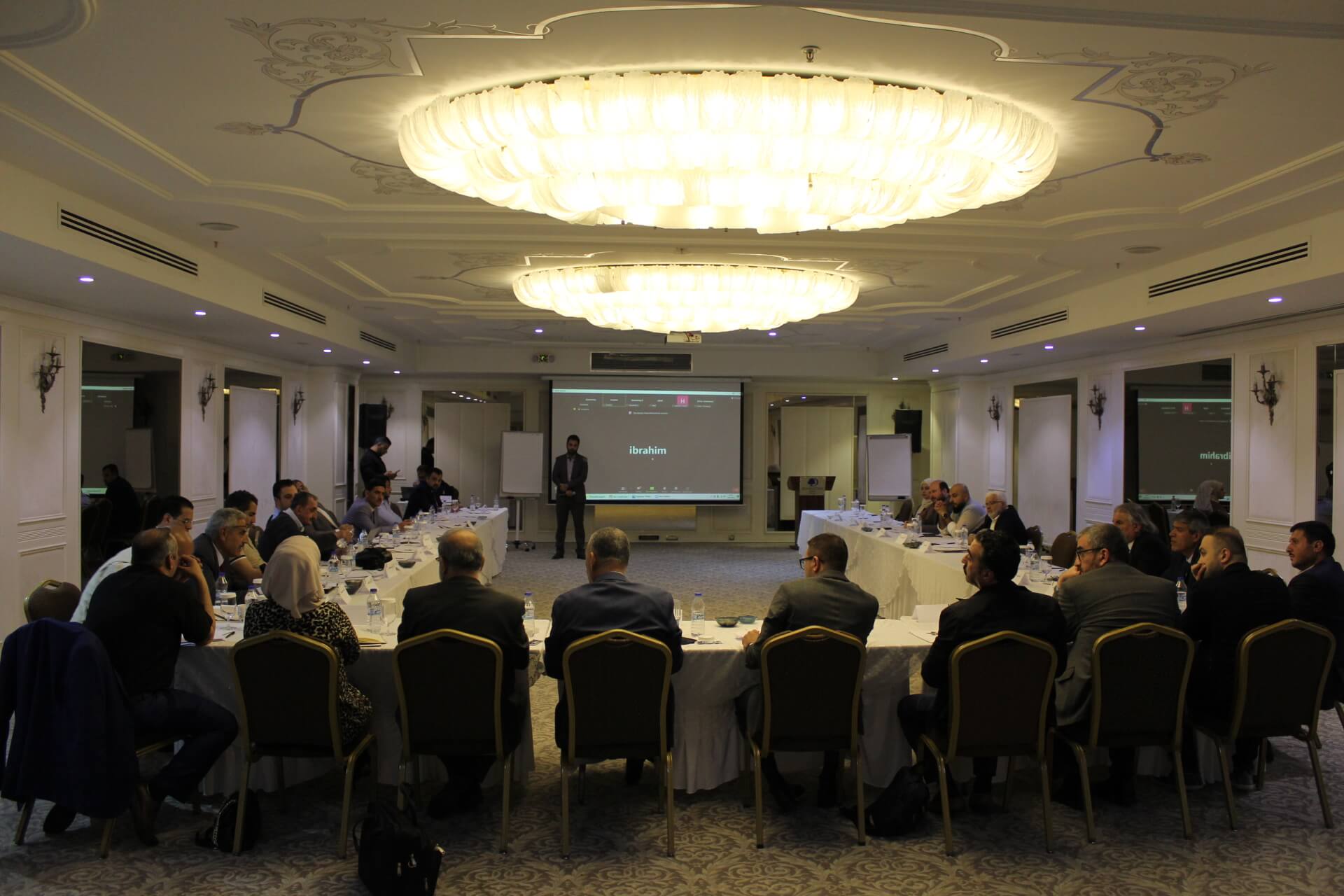The Al-Jazira and Euphrates Committee of the Syrian Opposition Coalition (SOC) held a workshop on the of dangers of the Iranian presence in the Syrian Al-Jazira and Euphrates region. The workshop was held in the city of Gaziantep and brought together SOC’s President Salem Al-Meslet and members of the political committee and the General Assembly.
In attendance were around 35 people from the Syrian Interim Government, the local councils in the eastern Euphrates region, the Association of Independent Kurdish Figures, the Stabilization Support Unit, the Center for Civil and Democratic Society, in addition to researchers, lawyers, journalists and representatives of civil groups.
The committee’s coordinator, Abdul Basit Abdul Latif, spoke about the history of the formation of the Committee as he stressed that it seeks to restore stability and establish a cohesive society in partnership with a local administration while preserving the sovereignty, unity and safety of the Syrian territories. The committee also seeks effective and direct communication with the local people and civil society, highlighting the active role of all the people of the region and ensuring their just and democratic representation.
Researcher at the Al-Sharq Center for Policies, Saad Al-Shari’, spoke about the importance of the Euphrates region in the Iranian project. He said that the Assad regime and Iranian militias took control of the border town of Albu Kamal back in 2017 with the support of Russian air force, enabling Iran to complete the so-called “Shiite Crescent” for the first time.
Al-Shari’ also talked about the size of the Iranian military forces in comparison to the Russia and Assad regime forces as he highlighted the nature of the relationship between these three forces. He pointed out that Iran sought to establish local military groups to support its military presence in the region.
Journalist Samer Al-Ahmad spoke about the distribution of control and influence in the province of Hasaka. He highlighted the Iranian activity in the region that began early in 2013 through the establishment of the National Defense Forces and the Baath Brigades militias as well as through the establishment of relations with the local tribes and proselytizing activities.
Al-Ahmad gave an overview on the Russian-Iranian rivalry over the region through competing for control of Qamishli Airport and the security branches, and attempts to incite the population against the US forces and sabotage the existing agreements.
Secretary of the SOC’s political committee, Abdul Majeed Barakat, spoke about the conflict between the Iranian militias and the US forces in the Jazira and Euphrates region, compared to the size of the military forces and the composition of these forces.
Barakat explained the strategic dimensions of the military forces present in the eastern region and the military steps taken by the US forces to confront the Iranian militias.
Participants stressed the danger of the growing Iranian influence in the region, and its constant attempts to establish its presence by forming local forces and building a local community that supports it.
They recommended supporting the steadfastness of the people of the region and communicating with them to coordinate positions, in addition to strengthening the role of local tribes to confront the Iranian militias.
They called for addressing the United Nations to highlight the violations of the Assad regime and Iran’s proxies in Syria, including the naturalization of Iranian militants and enabling them to seize the property of the displaced and those who revolted against the Assad regime.


(Source: SOC’s Media Department)












